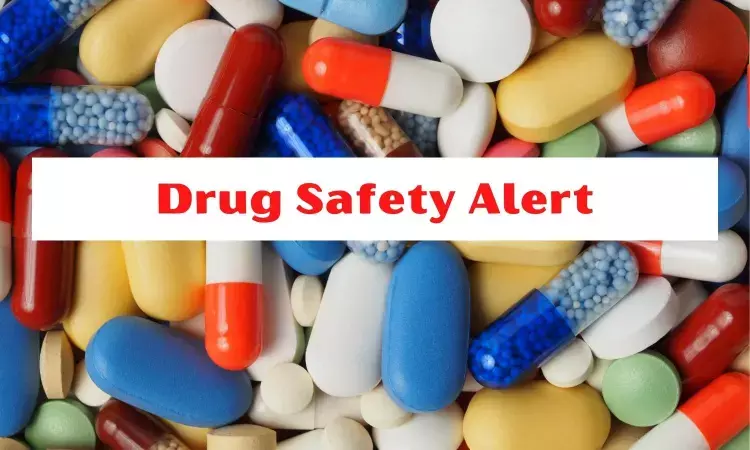- Home
- Medical news & Guidelines
- Anesthesiology
- Cardiology and CTVS
- Critical Care
- Dentistry
- Dermatology
- Diabetes and Endocrinology
- ENT
- Gastroenterology
- Medicine
- Nephrology
- Neurology
- Obstretics-Gynaecology
- Oncology
- Ophthalmology
- Orthopaedics
- Pediatrics-Neonatology
- Psychiatry
- Pulmonology
- Radiology
- Surgery
- Urology
- Laboratory Medicine
- Diet
- Nursing
- Paramedical
- Physiotherapy
- Health news
- Fact Check
- Bone Health Fact Check
- Brain Health Fact Check
- Cancer Related Fact Check
- Child Care Fact Check
- Dental and oral health fact check
- Diabetes and metabolic health fact check
- Diet and Nutrition Fact Check
- Eye and ENT Care Fact Check
- Fitness fact check
- Gut health fact check
- Heart health fact check
- Kidney health fact check
- Medical education fact check
- Men's health fact check
- Respiratory fact check
- Skin and hair care fact check
- Vaccine and Immunization fact check
- Women's health fact check
- AYUSH
- State News
- Andaman and Nicobar Islands
- Andhra Pradesh
- Arunachal Pradesh
- Assam
- Bihar
- Chandigarh
- Chattisgarh
- Dadra and Nagar Haveli
- Daman and Diu
- Delhi
- Goa
- Gujarat
- Haryana
- Himachal Pradesh
- Jammu & Kashmir
- Jharkhand
- Karnataka
- Kerala
- Ladakh
- Lakshadweep
- Madhya Pradesh
- Maharashtra
- Manipur
- Meghalaya
- Mizoram
- Nagaland
- Odisha
- Puducherry
- Punjab
- Rajasthan
- Sikkim
- Tamil Nadu
- Telangana
- Tripura
- Uttar Pradesh
- Uttrakhand
- West Bengal
- Medical Education
- Industry
Drug Safety Alert: Indian Pharmacopoeia Commission Flags ADR Linked To Ceftriaxone,Levosulpiride

New Delhi: The Indian Pharmacopoeia Commission (IPC), through its recently issued drug safety alert for the month of May, has revealed adverse drug reactions linked with the popular antibiotic Ceftriaxone and a typical antipsychotic drug Levosulpiride.
In accordance with the drug safety alert, Ceftriaxone causes a prolonged QT interval which is an irregular heart rhythm that can be seen on an electrocardiogram.
Furthermore, the alert stated that the antipsychotic drug Levosulpiride may lead to Restless Legs Syndrome (RLS), a condition that causes an uncontrollable urge to move the legs, usually because of an uncomfortable sensation.
This came after a preliminary analysis of Adverse Drug Reactions (ADRs) from the Pharmacovigilance Programme of India (PvPI) database.
Ceftriaxone is a broad-spectrum cephalosporin antibiotic used for the treatment of bacterial infections in various locations, such as in the respiratory tract, skin, soft tissue, and urinary tract.
Ceftriaxone works by inhibiting mucopeptide synthesis in the bacterial cell wall. The beta-lactam moiety of ceftriaxone binds to carboxypeptidases, endopeptidases, and transpeptidases in the bacterial cytoplasmic membrane. These enzymes are involved in cell-wall synthesis and cell division. The binding of ceftriaxone to these enzymes causes the enzyme to lose activity; therefore, the bacteria produce defective cell walls, causing cell death.
On the other hand, Levosulpiride, sold under the brand name Neoprad, is a typical antipsychotic and a prokinetic agent of the benzamide class. It is a selective antagonist of the dopamine D2 receptors in both central and peripheral nervous systems. Levosulpiride is claimed to have mood-elevating properties.
Following the preliminary analysis of Adverse Drug Reactions (ADRs) from the PvPI database, it is reported that Ceftriaxone causes a prolonged QT interval. QT prolongation occurs when the heart muscle takes longer to contract and relax than usual. Various health factors and medications can increase the risk. QT prolongation can affect heart rhythms and lead to sudden cardiac arrest.
Additionally, preliminary research on Adverse Drug Reactions (ADRs) from the PvPI database indicates that Levosulpiride may lead to Restless Legs Syndrome (RLS). Restless legs syndrome (RLS) is a neurological disorder that causes unpleasant or uncomfortable sensations in legs and an irresistible urge to move them.
Now, as per the issued drug safety alert, the following suspected drug is associated with the ADRs as given below:
Sl. No. | Suspected Drugs | Indications | Adverse Drug Reactions |
1 | Ceftriaxone | For the treatment of urinary tract infections, lower respiratory tract infections, bacteraemia, septicaemia, meningitis, abdominal infections and infections caused by pseudomonas species. | Electrocardiogram QT prolonged |
2 | Levosulpiride |
| Restless Legs Syndrome (RLS) |
In light of the above, the Indian Pharmacopoeia Commission, Ministry of Health & Family Welfare, has advised Healthcare Professionals, Patients/Consumers to closely monitor the possibility of the above ADRs associated with the use of above suspected drugs.
Further, the safety alert added, "If such reaction is encountered, please report to the NCC-PvPI, IPC by filling of Suspected Adverse Drug Reactions Reporting Form/Medicines Side Effect Reporting Form for Consumer (http://www.ipc.gov.in), through Android Mobile App "ADR PvPI App" and PvPIHelpline No. 1800-180-3024 (Toll Free)."
Mpharm (Pharmacology)
Susmita Roy, B pharm, M pharm Pharmacology, graduated from Gurunanak Institute of Pharmaceutical Science and Technology with a bachelor's degree in Pharmacy. She is currently working as an assistant professor at Haldia Institute of Pharmacy in West Bengal. She has been part of Medical Dialogues since March 2021.


